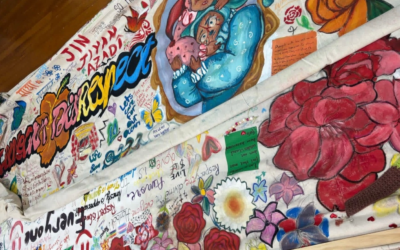Ian Escandor:
‘‘I look to a day when people will not be judged by the colour of their skin, but by the content of their character’’: Martin Luther King, Jr. (1963). A beautiful quote but often misconstrued as advocating for ‘colour-blindness’. Those who purport this notion of colour-blindness believe they can do good by ignoring the colour, or gender, or disability of another human, and by equating their struggle with the rest of mainstream society’s; we know that is not true. We only need to look to various issues across Australia that highlight the need to work with these marginalised groups such as the over-representation of Aboriginal youth shamefully treated in youth detention centres in Nothern Terroritory (Four Corners, 2016), or how gender norms in Australia have contributed to the alarming rate of one woman being killed per week due to domestic violence (whiteribbon.org.au, 2014), or the cuts to mental health services which have resulted in services closing down across Australia (ABC Online, 2016). So my point is, I beseech you to not fall into the trap of preaching “colour-blindness” but instead celebrate, recognise, and uplift the differences within our diverse community – all the while not forgeting the struggle these groups face.
Melissa Swann:
Diversity at Western Sydney feels like something that goes without saying, really. With so many campuses spread out across the western suburbs, how could we not be diverse? I think one of my favourite things about this university being home to such a wide range of students from different cultural backgrounds is that it’s just become second nature. It’s not at all out of the ordinary for any tutorial discussion to venture into cultural difference, into different life experiences and how we bring those experiences to what we learn. You come to university to be challenged, sometimes with viewpoints that are miles off from what you know. Getting to come face to face with such a massively diverse range of people, both in the classroom and out, is perhaps the most valuable thing Western Sydney can offer to any university student.
Jodie Sale:
What does Diversity mean to me ?
Being transparent and understanding that we are different and have differences. An important factor is recognising, acknowledging and discussing differences.
Often people don’t want to be the cause of incohesiveness so they don’t bring up differences. However, understanding diversity means needing to acknowledge the differences and ongoing discussion of the differences in beliefs and, in turn, exchanging ideas and bringing differences into the process – aiming to utilise them to increase productivity rather than suppressing them in the hope that they don’t cause friction.
So I think useful steps would be emphasising communication, viewing workers as individuals, encouraging diverse work groups to allow an exchange of ideas and basing decisions on criteria, not personal bias or a cultural base.
Iman Sohail:
Our diversity today is extraordinary. The points on which humanity differs are endless. Yet, despite the differences in race, nationality, religion, colour, gender or class, at the end of the day we are also just human beings, and that is what should unite us. We are so lucky to live in such a multicultural society and I think the key for the preservation of mankind (maybe even a peaceful world) is everyone consciously embracing diversity. Go out there and learn about a different culture, learn a few sentences of another language or enjoy a different cuisine; do something to embrace our diverse world.
And just a little about me: I’m currently in the Master of Research focusing on ways to prevent prostate cancer recurrence through herbal remedies. Whilst my mind is pretty much science-focused, I also have a passion for global politics and international relations so you will most likely be reading my (strong) opinions on any interesting political events.
Have a great day!
Nicole Gismondo:
When I think of diversity, I think of the collective movements on our campuses, the budding women’s collective, newly established ethno-cultural collective, and thriving queer collective. When I think of diversity, I think of the variety of student clubs that I see put bids through in my role on the clubs extra SSAF funding committee. When I think of diversity, I think of all the CALD people that attend my university and take classes with me. When I think of diversity, I reflect on all the articles we receive each edition of the W’SUP.
When I think of diversity, I think Western Sydney University.
This is why it is so great that Diversity Fest is able to tap into that every year, and be a celebration of everyone.
I sincerely hope that you enjoy this edition and all the diversity of ideas that we have been able to compile.
As always, make sure you write for our next edition!


